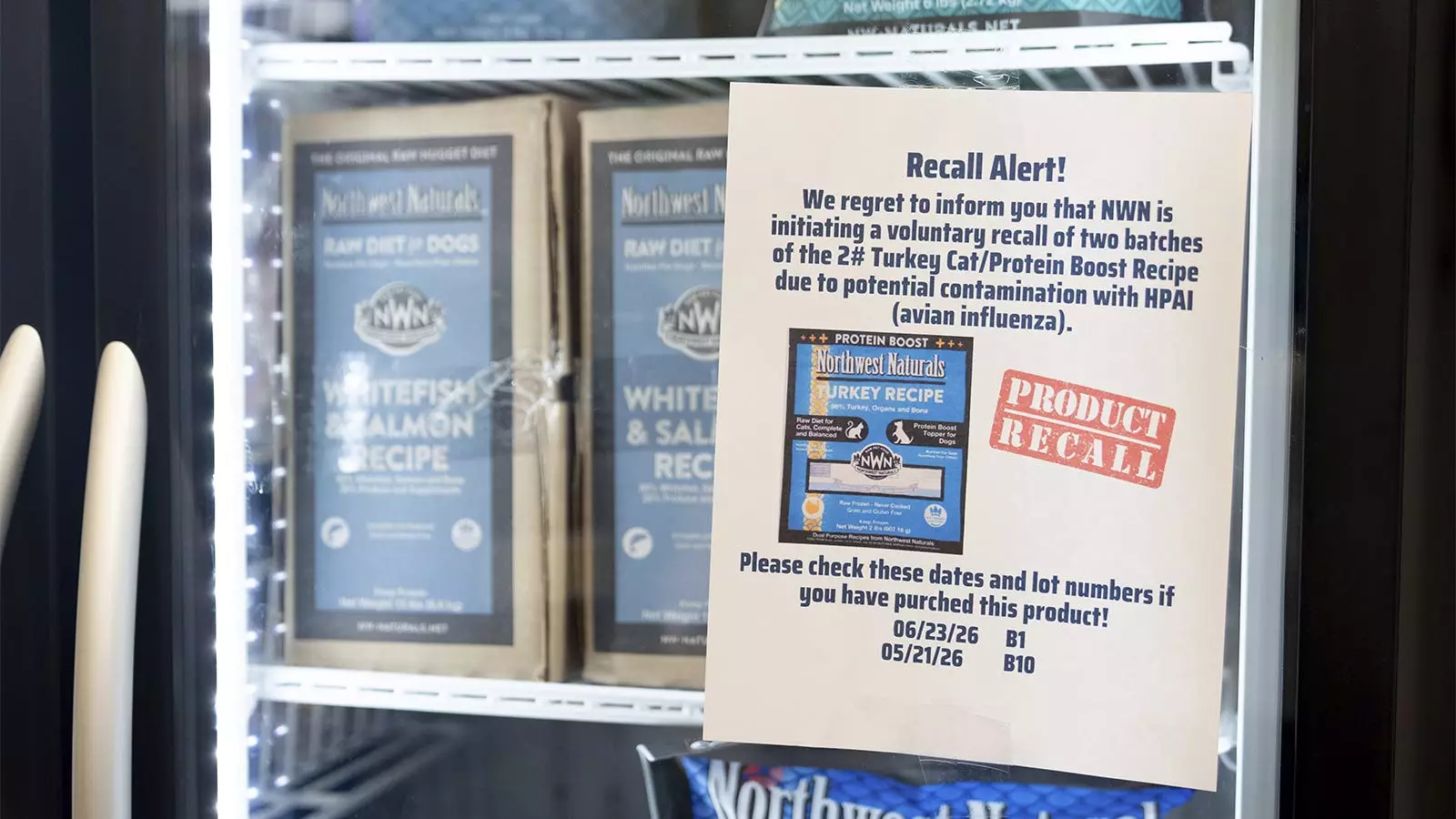The puzzling and concerning case of a cat in Oregon succumbing to the bird flu, coupled with a piecemeal recall of certain pet foods, has sparked attention towards the broader implications of avian influenza for domestic pets. This particular incident highlights not only the potential hazards facing our beloved pets but also raises important questions about the safety of the food we provide them. Bird flu, identified as a persistent affliction primarily affecting wild birds and poultry, has recently made headlines for its unexpected reach into the domestic animal population.
With the confirmation of the virus in various animals, including dairy cattle in the United States, it underscores how far-reaching the effects of the influenza virus can be. The unfortunate death of the Oregon cat was traced back to contaminated frozen cat food containing raw turkey, illustrating a concerning trend regarding the type of diets some pet owners choose. Indeed, it is crucial to understand that the virus is not limited to the world of poultry alone; it has implications for other species, including domestic pets that may inadvertently come into contact with infected food items.
The Dynamics of Avian Influenza
The H5N1 strain of bird flu has been sporadically linked to mild illness in humans, primarily those directly working in agricultural settings involving livestock. However, what remains alarming is the rising incidence of feline infections that have been associated with wild birds, domestic poultry, and now, pet food. Such a trend is not just an isolated incident; cases of cats infected with bird flu have been increasingly reported, triggering both caution and concern among pet owners and veterinary professionals alike.
The Oregon health officials’ findings related to the cat’s illness serve as a stark reminder of the potential health risks pet owners may inadvertently cause to their beloved companions. As indicated by experts like Dr. Michael Q. Bailey of the American Veterinary Medical Association, the consumption of raw meat or dairy products can create pathways for viruses, including bird flu, to spread among pets. This reinforces the message that providing unprocessed or raw food to pets is not just a simple dietary choice—it could have serious health implications.
Practical Safety Measures
For pet owners, the question remains: how can they effectively guard against the potential threats posed by avian influenza? Experts advise a multifaceted approach to ensure the safety of our pets. Firstly, it’s imperative to avoid feeding cats or dogs raw meat or unpasteurized dairy products, as these have been shown to carry various pathogens, including the bird flu virus. Additionally, keeping pets indoors and away from wild birds and poultry can significantly mitigate the risk of exposure.
Moreover, pet owners should be vigilant in monitoring their pets for signs of illness. Symptoms in cats, such as lethargy, altered behavior, eye discharge, breathing difficulties, or fever, require immediate veterinary attention. If these symptoms arise, it is critical to isolate the pet from those with weakened immune systems to prevent potential transmission.
In light of these developments, the responsibility lies heavily on pet owners to take practical and informed steps in safeguarding their pets’ health amidst an ongoing public health concern. The recent recall by Northwest Naturals of a batch of its raw turkey pet food reflects a broader issue of food safety and awareness that must not be ignored. Pet owners who purchased the recalled products should dispose of them and seek refunds to minimize health risks.
As we navigate the implications of bird flu for our pets, education remains an invaluable tool. Awareness of the symptoms, a shift towards safer feeding practices, and a commitment to keeping pets away from potential sources of infection are necessary measures that can contribute significantly to their well-being. Through attentive care and precautionary steps, we can ensure our feline friends remain safe and healthy in these uncertain times.



Leave a Reply